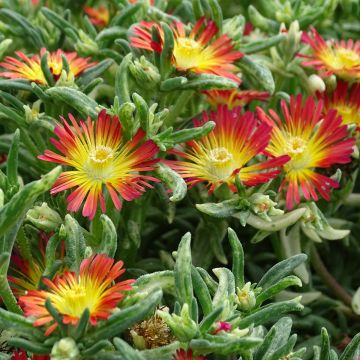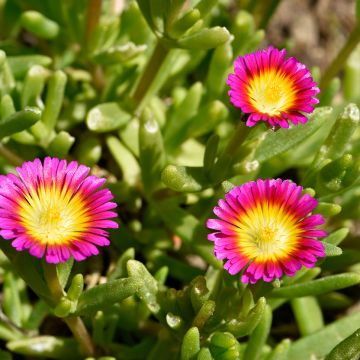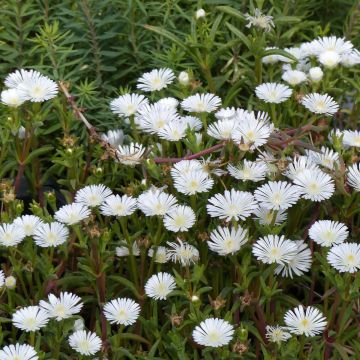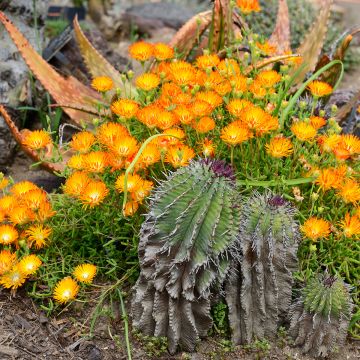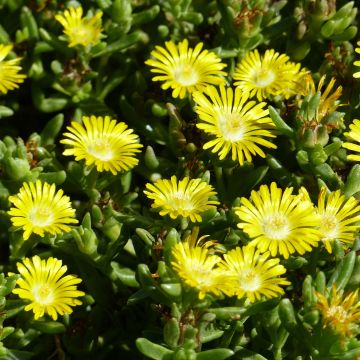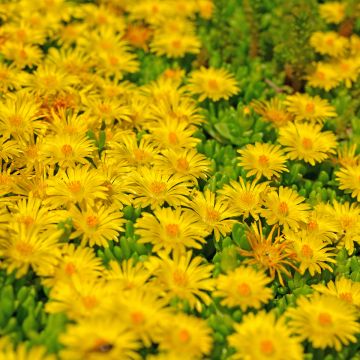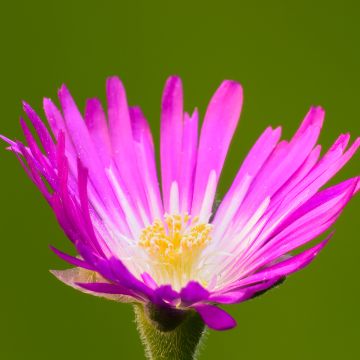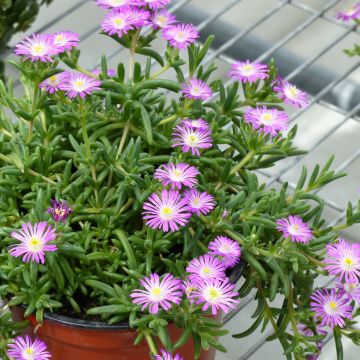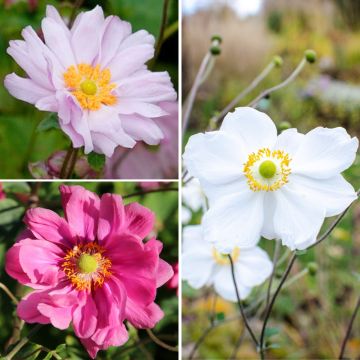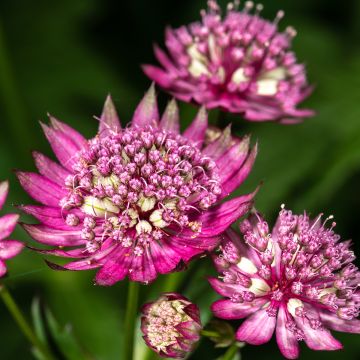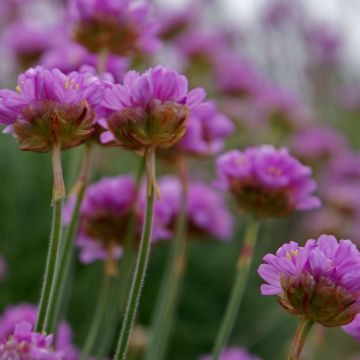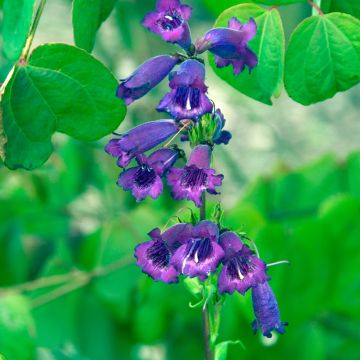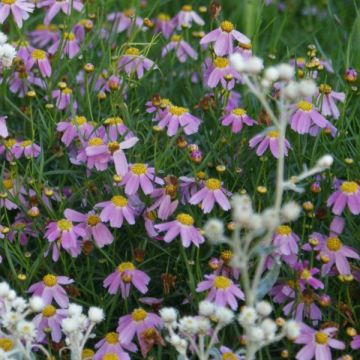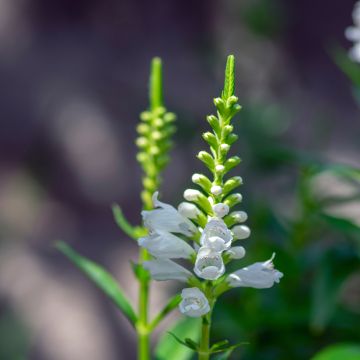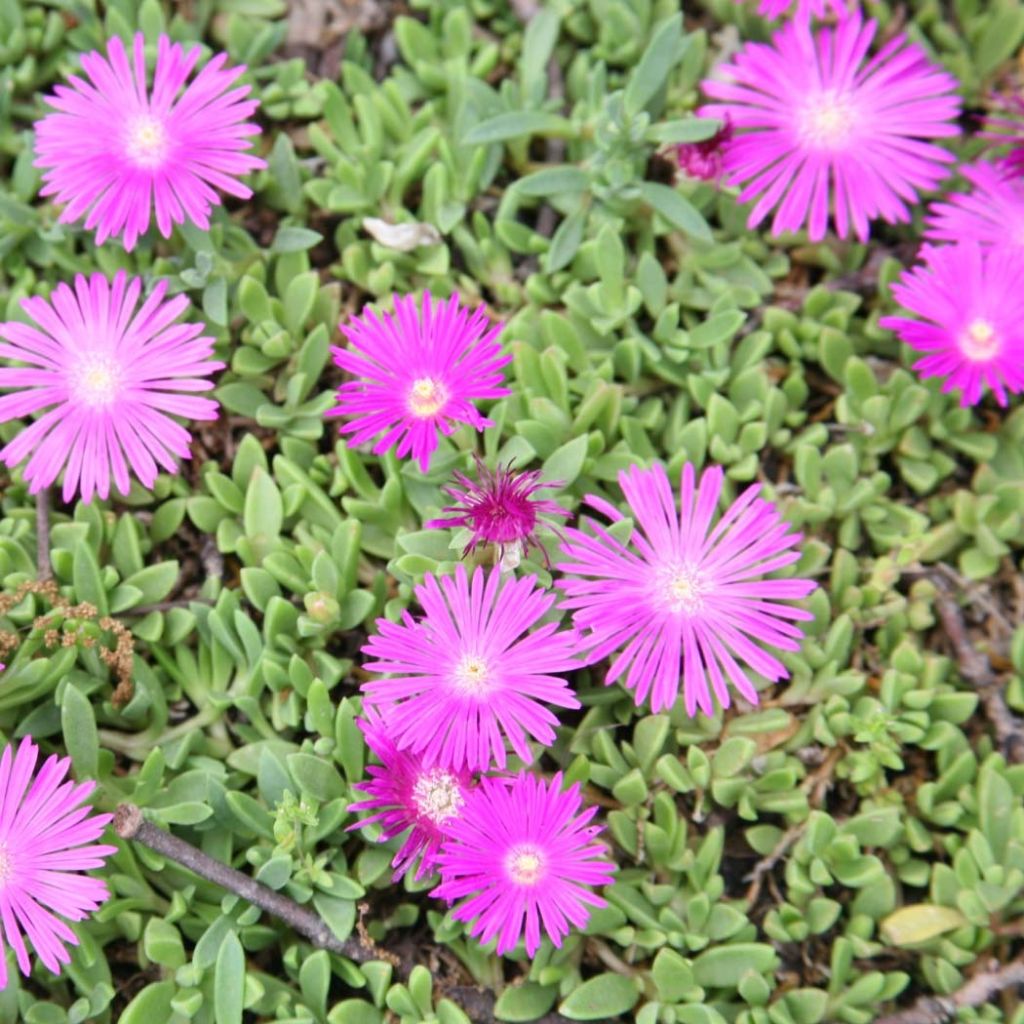

Delosperma cooperi Table Mountain
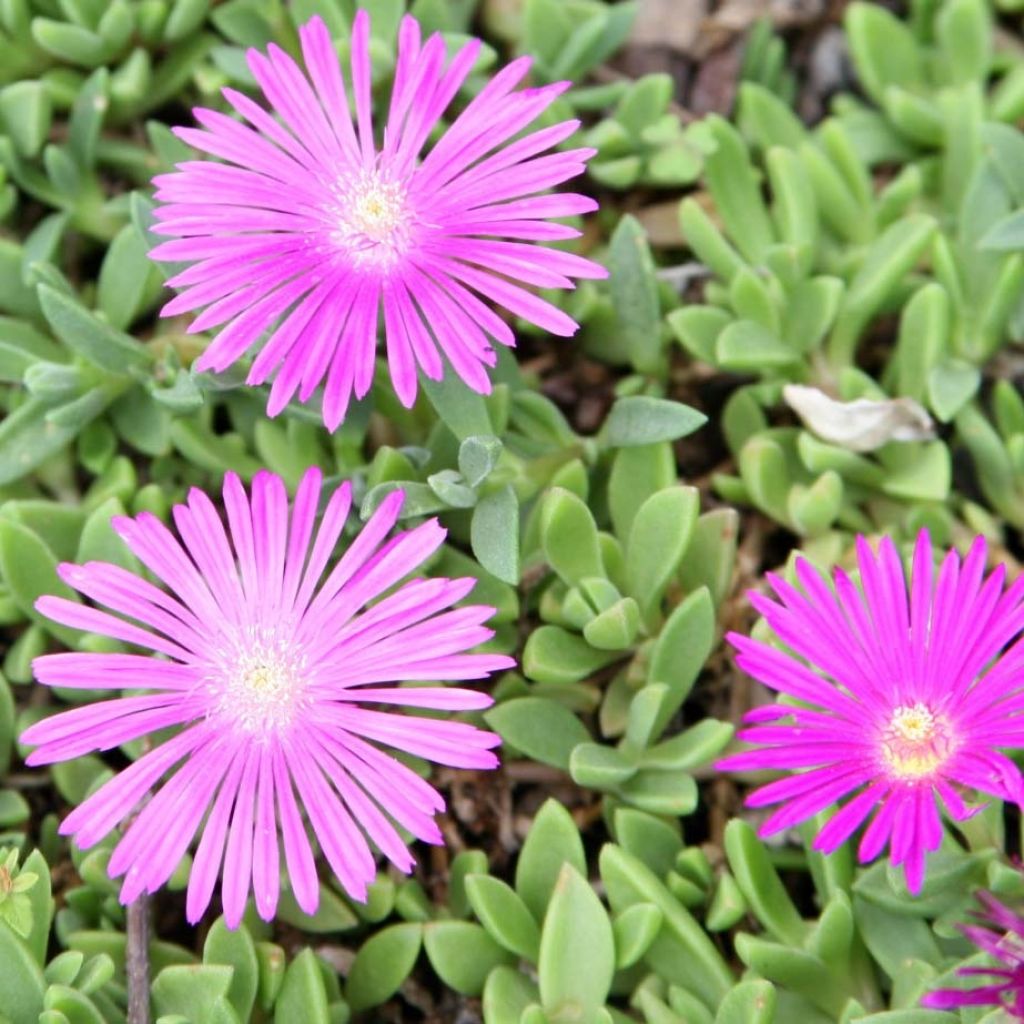

Delosperma cooperi Table Mountain
Delosperma cooperi Table Mountain
Delosperma cooperi Table Mountain
Trailing Iceplant, Cooper's Ice Plant, Pink Carpet, Hardy Iceplant
They look to be in good shape despite my very late order.
isabelle, 08/12/2025
Special offer!
Receive a €20 voucher for any order over €90 (excluding delivery costs, credit notes, and plastic-free options)!
1- Add your favorite plants to your cart.
2- Once you have reached €90, confirm your order (you can even choose the delivery date!).
3- As soon as your order is shipped, you will receive an email containing your voucher code, valid for 3 months (90 days).
Your voucher is unique and can only be used once, for any order with a minimum value of €20, excluding delivery costs.
Can be combined with other current offers, non-divisible and non-refundable.
Home or relay delivery (depending on size and destination)
Schedule delivery date,
and select date in basket
This plant carries a 12 months recovery warranty
More information
We guarantee the quality of our plants for a full growing cycle, and will replace at our expense any plant that fails to recover under normal climatic and planting conditions.
Would this plant suit my garden?
Set up your Plantfit profile →
Description
Delosperma cooperi 'Table Mountain' is named after the famous Table Mountain range, which proudly overlooks the Cape Province in South Africa, the homeland of its ancestor, Cooper's delosperma. This variety was selected in the USA for its vigour, increased resistance to weed competition, robustness, and its vibrant pink flowers that bloom throughout the summer. This creeping perennial densely covers walls, rockeries, and borders with succulent foliage that turns violet in winter. Like all delospermas, this variety thrives in sunny, poor soil and can tolerate drought. If necessary, it can be brought indoors during the winter.
Cooper's delosperma belongs to the Aizoaceae family. It is named in tribute to the 19th-century English botanist, Thomas Cooper. His expeditions to collect numerous specimens in South Africa allowed him to specialize in the flora of these regions, which are governed by a Mediterranean climate, particularly in the Cape region. Delosperma cooperi is a perennial that thrives in poor, well-draining soil and full sun. If your region experiences temperatures close to -10°C (14°F), place it in a pot or container that can be brought indoors during the winter.
The 'Table Mountain' cultivar (also known as 'John Proffitt') develops sprawling, highly branched stems that readily root, covering an area up to 60cm (24in) wide under favourable conditions. They bear numerous small, succulent leaves that range from grey-green to green and turn violet in cold weather. These leaves are sessile, meaning they have no petiole and are directly attached to the stems. They are fleshy, warty, and approximately 3cm (1in) long. The plant forms a low-growing mat (8cm (3in)) that is covered in flowers from June to August-September. The flowers are grouped in cymes, measuring 2.5 to 3cm (1in) wide, and gradually transition from magenta pink to fuchsia pink around a white centre. Its long flowering period brings vibrant colours to the most neglected areas of the garden. The flowers only open in the sun.
Delosperma cooperi 'Table Mountain' is an excellent rockery plant, but this more vigorous selection will cover the ground more effectively than other unusual varieties and keep unwanted competitors in check. It thrives in slightly arid and challenging areas of the garden, such as dry and rocky slopes, dry stone walls, and sunny rockeries. Sedums, dwarf carnations, wall bellflowers, and creeping baby's breath make good companions for this exotic-looking mat, as do Valerian (Centranthus), which share the same needs: sun and dry soil.
Report an error about the product description
Delosperma cooperi Table Mountain in pictures
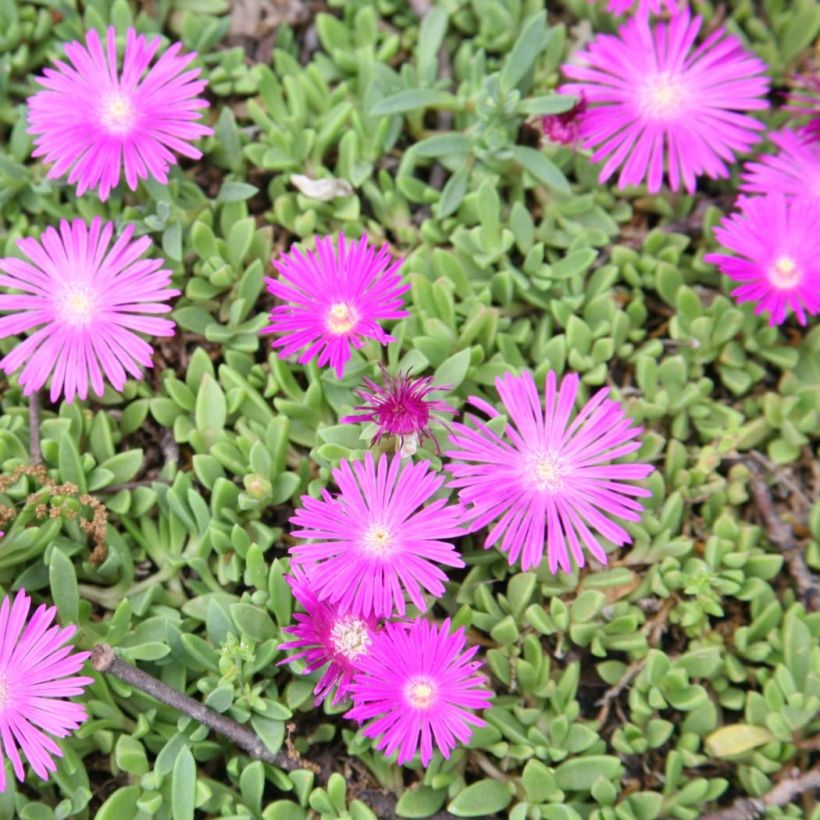

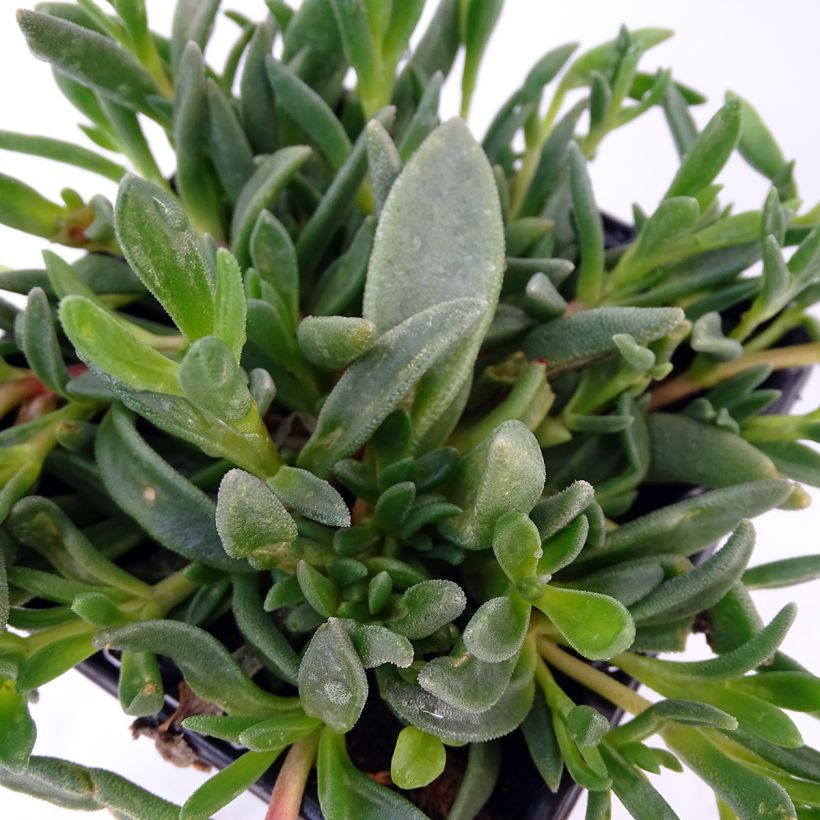

Flowering
Foliage
Plant habit
Botanical data
Delosperma
cooperi
Table Mountain
Aizoaceae
Trailing Iceplant, Cooper's Ice Plant, Pink Carpet, Hardy Iceplant
Cultivar or hybrid
Other Delosperma
View all →Planting and care
Delosperma 'Table Mountain' prefers to be planted in spring (or in autumn in mild and warm climates) in a well-drained, light, poor, dry, even rocky or sandy soil. It likes walls, rockeries, and well-exposed slopes. If your region experiences frost below -8/-10 °C (17.6/14°F), it is preferable to plant it in a pot or container. This way, you can protect it during winter if necessary.
A sunny and warm location is essential for it to feel comfortable and bloom abundantly. You can remove faded flowers to encourage new growth. Dividing the stump may be necessary after a few years, depending on its location.
Make sure it does not get covered with dead leaves from nearby trees, as they may cause rotting. Similarly, it does not appreciate having its feet in stagnant water.
Planting period
Intended location
Care
-
, onOrder confirmed
Reply from on Promesse de fleurs
Similar products
Haven't found what you were looking for?
Hardiness is the lowest winter temperature a plant can endure without suffering serious damage or even dying. However, hardiness is affected by location (a sheltered area, such as a patio), protection (winter cover) and soil type (hardiness is improved by well-drained soil).

Photo Sharing Terms & Conditions
In order to encourage gardeners to interact and share their experiences, Promesse de fleurs offers various media enabling content to be uploaded onto its Site - in particular via the ‘Photo sharing’ module.
The User agrees to refrain from:
- Posting any content that is illegal, prejudicial, insulting, racist, inciteful to hatred, revisionist, contrary to public decency, that infringes on privacy or on the privacy rights of third parties, in particular the publicity rights of persons and goods, intellectual property rights, or the right to privacy.
- Submitting content on behalf of a third party;
- Impersonate the identity of a third party and/or publish any personal information about a third party;
In general, the User undertakes to refrain from any unethical behaviour.
All Content (in particular text, comments, files, images, photos, videos, creative works, etc.), which may be subject to property or intellectual property rights, image or other private rights, shall remain the property of the User, subject to the limited rights granted by the terms of the licence granted by Promesse de fleurs as stated below. Users are at liberty to publish or not to publish such Content on the Site, notably via the ‘Photo Sharing’ facility, and accept that this Content shall be made public and freely accessible, notably on the Internet.
Users further acknowledge, undertake to have ,and guarantee that they hold all necessary rights and permissions to publish such material on the Site, in particular with regard to the legislation in force pertaining to any privacy, property, intellectual property, image, or contractual rights, or rights of any other nature. By publishing such Content on the Site, Users acknowledge accepting full liability as publishers of the Content within the meaning of the law, and grant Promesse de fleurs, free of charge, an inclusive, worldwide licence for the said Content for the entire duration of its publication, including all reproduction, representation, up/downloading, displaying, performing, transmission, and storage rights.
Users also grant permission for their name to be linked to the Content and accept that this link may not always be made available.
By engaging in posting material, Users consent to their Content becoming automatically accessible on the Internet, in particular on other sites and/or blogs and/or web pages of the Promesse de fleurs site, including in particular social pages and the Promesse de fleurs catalogue.
Users may secure the removal of entrusted content free of charge by issuing a simple request via our contact form.
The flowering period indicated on our website applies to countries and regions located in USDA zone 8 (France, the United Kingdom, Ireland, the Netherlands, etc.)
It will vary according to where you live:
- In zones 9 to 10 (Italy, Spain, Greece, etc.), flowering will occur about 2 to 4 weeks earlier.
- In zones 6 to 7 (Germany, Poland, Slovenia, and lower mountainous regions), flowering will be delayed by 2 to 3 weeks.
- In zone 5 (Central Europe, Scandinavia), blooming will be delayed by 3 to 5 weeks.
In temperate climates, pruning of spring-flowering shrubs (forsythia, spireas, etc.) should be done just after flowering.
Pruning of summer-flowering shrubs (Indian Lilac, Perovskia, etc.) can be done in winter or spring.
In cold regions as well as with frost-sensitive plants, avoid pruning too early when severe frosts may still occur.
The planting period indicated on our website applies to countries and regions located in USDA zone 8 (France, United Kingdom, Ireland, Netherlands).
It will vary according to where you live:
- In Mediterranean zones (Marseille, Madrid, Milan, etc.), autumn and winter are the best planting periods.
- In continental zones (Strasbourg, Munich, Vienna, etc.), delay planting by 2 to 3 weeks in spring and bring it forward by 2 to 4 weeks in autumn.
- In mountainous regions (the Alps, Pyrenees, Carpathians, etc.), it is best to plant in late spring (May-June) or late summer (August-September).
The harvesting period indicated on our website applies to countries and regions in USDA zone 8 (France, England, Ireland, the Netherlands).
In colder areas (Scandinavia, Poland, Austria...) fruit and vegetable harvests are likely to be delayed by 3-4 weeks.
In warmer areas (Italy, Spain, Greece, etc.), harvesting will probably take place earlier, depending on weather conditions.
The sowing periods indicated on our website apply to countries and regions within USDA Zone 8 (France, UK, Ireland, Netherlands).
In colder areas (Scandinavia, Poland, Austria...), delay any outdoor sowing by 3-4 weeks, or sow under glass.
In warmer climes (Italy, Spain, Greece, etc.), bring outdoor sowing forward by a few weeks.






























